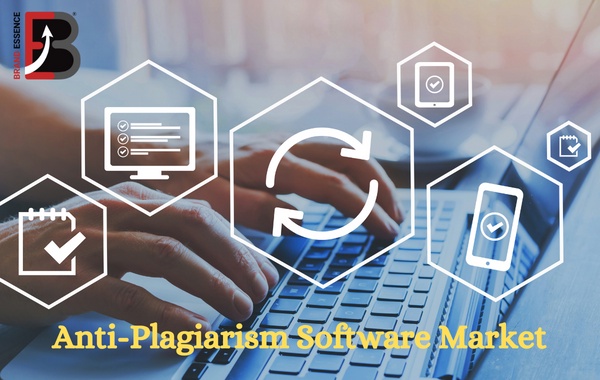Anti-Plagiarism Software Companies Overview:
In today's digital age, where information is readily accessible with just a few clicks, the issue of plagiarism has become a significant concern, particularly in academic and professional circles. Plagiarism, the act of using someone else's work without proper attribution, not only undermines the original author's efforts but also compromises the integrity of the individual or institution presenting the plagiarized material. To combat this problem, anti-plagiarism software companies have emerged as crucial players in upholding academic integrity and ensuring originality in written content.
Understanding Anti-Plagiarism Software:
Anti-plagiarism software is designed to detect instances of plagiarism by comparing submitted texts against a vast database of existing content, including academic papers, journals, websites, and publications. These software solutions employ sophisticated algorithms and techniques to analyze textual similarities and identify potential instances of plagiarism. The goal is to provide educators, researchers, publishers, and writers with the tools necessary to uphold academic honesty and intellectual integrity.
Key Players in the Industry:
Several prominent anti-plagiarism software companies dominate the market, each offering unique features and capabilities tailored to the needs of their users. Some of the leading players include:
- Turnitin: Established in 1998, Turnitin is one of the most well-known names in the anti-plagiarism software industry. It offers a comprehensive suite of tools for educational institutions to check for plagiarism in student submissions, facilitate feedback, and promote academic integrity.
- Grammarly: While primarily recognized as a grammar checking tool, Grammarly also incorporates plagiarism detection features. It helps writers identify potential instances of plagiarism and provides suggestions for improving originality and clarity in their writing.
- Copyscape: Copyscape is a web-based plagiarism detection tool commonly used by website owners, content creators, and SEO professionals to identify instances of content theft and unauthorized duplication on the internet. It offers both free and premium services for checking website content and ensuring its uniqueness.
- Plagscan: Plagscan is widely used in educational institutions, publishing houses, and businesses to detect plagiarism in written documents. It employs advanced algorithms to analyze text and generate detailed reports highlighting similarities with existing content sources.
Browse More Information:
https://brandessenceresearch.com/blog/top-anti-plagiarism-software-tools-companies-2021
Features and Functionality:
Anti-plagiarism software companies offer a range of features and functionality designed to meet the diverse needs of their users. Some common features include:
- Text Comparison: The ability to compare submitted texts against a database of existing content to identify similarities and potential instances of plagiarism.
- Originality Reports: Detailed reports highlighting matched text and providing insights into the originality of the submitted content.
- Integration with Learning Management Systems (LMS): Seamless integration with popular LMS platforms to streamline the plagiarism detection process for educators and students.
- Customization Options: Flexible settings and customization options to tailor the plagiarism detection process according to specific requirements and preferences.
- Accessibility: User-friendly interfaces and accessibility features to ensure ease of use for educators, students, writers, and content creators.
Importance in Academic and Professional Settings:
The role of anti-plagiarism software companies extends beyond mere detection of plagiarism. By promoting awareness of academic integrity principles and providing tools for originality assessment, these companies play a crucial role in fostering a culture of honesty and accountability in academic and professional settings. They empower educators to teach students about the importance of citing sources properly and producing original work, thus preparing them for ethical practices in their respective fields.
Future Trends and Challenges:
As technology continues to evolve, anti-plagiarism software companies face ongoing challenges and opportunities. Advancements in artificial intelligence and natural language processing are expected to enhance the accuracy and efficiency of plagiarism detection algorithms. However, concerns regarding privacy, data security, and algorithmic bias remain significant considerations for both users and providers of anti-plagiarism software.
Conclusion:
Anti-plagiarism software companies play a vital role in upholding academic integrity and combating plagiarism in today's digital landscape. By offering innovative solutions and promoting ethical writing practices, these companies contribute to the advancement of knowledge and the preservation of intellectual honesty in academic and professional communities. As the demand for reliable plagiarism detection tools continues to grow, anti-plagiarism software companies will remain indispensable partners in the pursuit of originality and integrity.


No comments yet